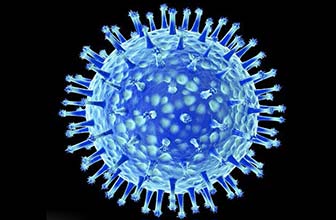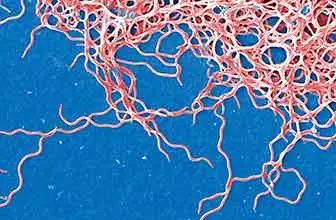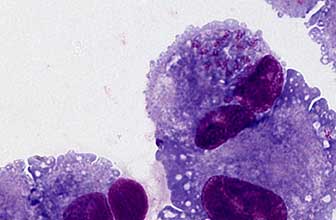Infectious disease
Epstein-Barr virus infection (EBV)
Epstein-Barr virus (EBV) infection is an infection caused by a human herpesvirus type 4 (HHV-4), a member of the Herpesviridae family, and one of the most frequent human viruses. The transmission of the virus is through body fluids. Most often it is through saliva, but it can also be spread through blood and semen. The first time a person is infected, they can spread the virus for weeks, even without symptoms. Once in the body, the virus remains latent and, if reactivated, it can spread to other people again. The most common symptoms are fatigue, fever, swollen liver and throat, an enlarged spleen, or a rash. The Epstein-Barr virus can cause infectious mononucleosis, as well as other diseases. Rarely, it is associated with cancer (particularly Burkitt's lymphoma, nasopharyngeal carcinoma, Hodgkin's disease, and immunoblastic lymphoma). The treatment only serves to lessen the symptoms (antipyretics and analgesics), and it is recommended to drink plenty of fluids and rest. As a prevention, it is advisable to maintain safe sex and not kiss or share anything that we put in our mouths with infected people. The diagnosis of Epstein-Barr virus infection is quite a challenge, since the symptoms are similar to those of other diseases. To diagnose the disease, antibodies against the disease are detected in the blood.
The virus is present worldwide. Most people end up being infected with this virus at some point in their lives. By age 35, almost everyone has EBV antibodies. Newborns become susceptible to the virus as soon as the mother's antibody protection wears off. When this infection occurs during adolescence, in 35-50% of cases it leads to infectious mononucleosis.
References of Epstein-Barr virus infection (EBV)
RECOMBINANT ANTIGENS
Name, references, and description
ChimEBV-EA
- RAG0082 (chimera)
- Multi-epitope recombinant chimeric early antigen for Epstein-Barr Virus (EBV)
ChimEBV-VCA
- RAG0081 (chimera)
- Multi-epitope recombinant chimeric viral capsid antigen for Epstein-Barr Virus (EBV)
Brochures
- Rekom Biotech catalogue
- Recombinant proteins for in vitro diagnosis of human infectious diseases
- Sexually transmitted diseases (STD)
- Recombinant antigens for diagnosis of EBV
Videos
Specialists in IVD reagents for infectious disease diagnosis
We ensure a commitment to absolute confidentiality regarding all information received and generated related to your project.
-
[[carrito.product.name]]
- [[sku.sku]]
Or if you prefer...
We will analyze your request to prepare a quote tailored to your needs.
-
[[carrito.product.name]]
- [[sku.sku]]
As manufacturers, we can adapt our products to your needs.
Contact us!








